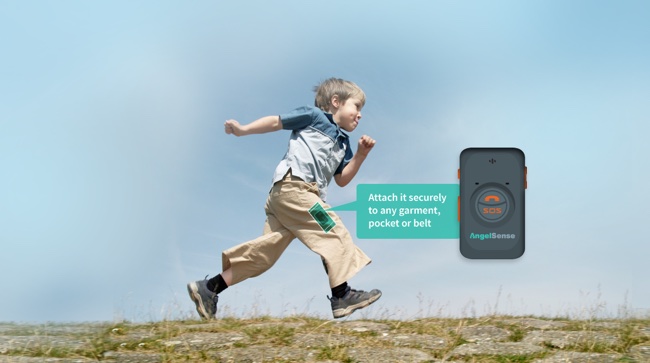GPS Based Technology and ASD
Updated on December 26, 2019
A guest post by Amir Tal, PhD.
This post is brought to you by AngelSense, GPS and voice monitoring to improve the safety and well-being of children with special needs.
CLICK HERE to watch parents share their AngelSense experience.
Most families with a child who has special needs know full well the concept of it taking a village. From medical professionals to educators and deep into our communities, we create a team of people to help. But within our family is where the deepest well of support and care usually emerges. According to professional literature, there are an estimated 17 million unpaid family caregivers who provide care to a child with special needs under the age of 18 in the United States (The National Alliance for Care giving and AARP, 2012).
On average, these family caregivers spend 30 hours per week providing care, and one in four provides care for at least 41 hours a week. This can include anything from vital care management, monitoring the child’s condition, transportation services, to advocating, social and educational support and administering medicine and medical care (Kuo, Cohen, Agrawal, Berry, and Casey, 2011).
While most caregivers report that they are satisfied with their role as caregivers, care giving can take its toll. Even done from a place of love, there can be physical strain, high emotional stress, a lack of time for other family members and friends, and sometimes a strong financial hardship.

One of the main contributors to burden among family caregivers of children with Autism Spectrum Disorders (ASD) is the worry for the safety and well-being of their loved ones. Children with ASD are more likely to suffer bullying, verbal, physical and/or sexual abuse and other forms of mistreatments.
Due to the fact that children with ASD often do not report abuse, their caregivers have high levels of concerns for their children’s safety and well-being when they are out of the home. Another significant stressor is related to the fact that children with ASD are at high risk of life threatening behaviors such as elopement.
But what can be done? In many minds, technology lies at the heart of most aspects of inclusive development and the fulfillment of rights for persons with disabilities. Assistive technology (AT) is defined as any item, piece of equipment or product system, whether acquired commercially, modified or customized, that is used to increase, maintain or improve the functional capabilities of individuals (Individuals with Disabilities Education Improvement Act, 2004).
The main goal of AT is to assist people with disabilities to overcome functional limitations, increase their independence, and provide opportunities for them to participate more fully in society. AT also offers great promise for facilitating some of the responsibilities of family caregivers, to reduce their burden, and increase their quality of life.
In recent years, solutions that are based on GPS have been used to create a more secure environment for people with developmental and cognitive conditions (mostly for people with dementia), through maintaining their autonomy and reducing the care giving burden that is related to these conditions. The main features of these solutions are based on their ability to find a person if he got lost.
Emerging new, more comprehensive solutions adds sophisticated analytical layers to GPS technology which reduce false alerts and improve the ability to locate a missing person. They also allow schedule monitoring and alert on deviations from it, enable voice monitoring of the individual’s environment, in cases where there is a concern for the their loved one safety, and provide added value features for the caregivers on the same platform related to his schedule (morning, day and night)
Recent technological developments, such as the AngelSense solution, have a major potential to increase the safety and well-being of millions of children and adults with disabilities while enhancing the peace of mind and quality of life of their family caregivers.
Feel free to leave a comment and share your thoughts.
This post is brought to you by AngelSense, GPS and voice monitoring to improve the safety and well-being of children with special needs.
Read Reviews From Parents who use AngelSense
Get peace of mind from AngelSense, the groundbreaking AI-based assistive technology designed to enhance safety and peace of mind for individuals with special needs and their families. Our solution ensures you stay connected with your loved ones, empowering a higher level of independence while maintaining safety. Learn more about how AngelSense can make a difference for your family.

